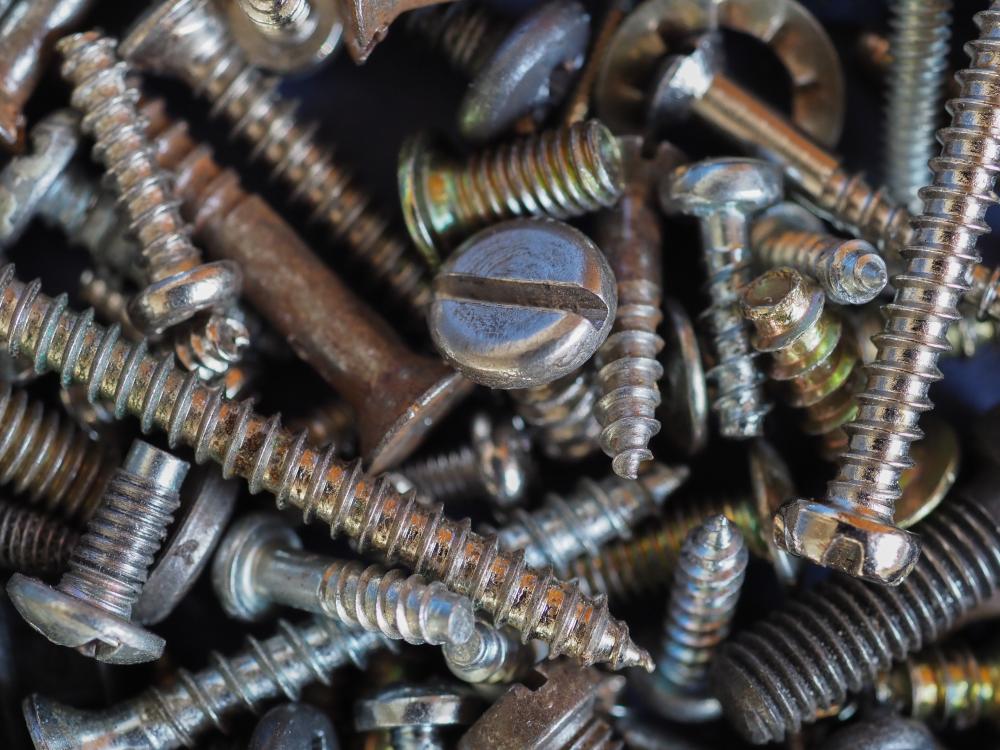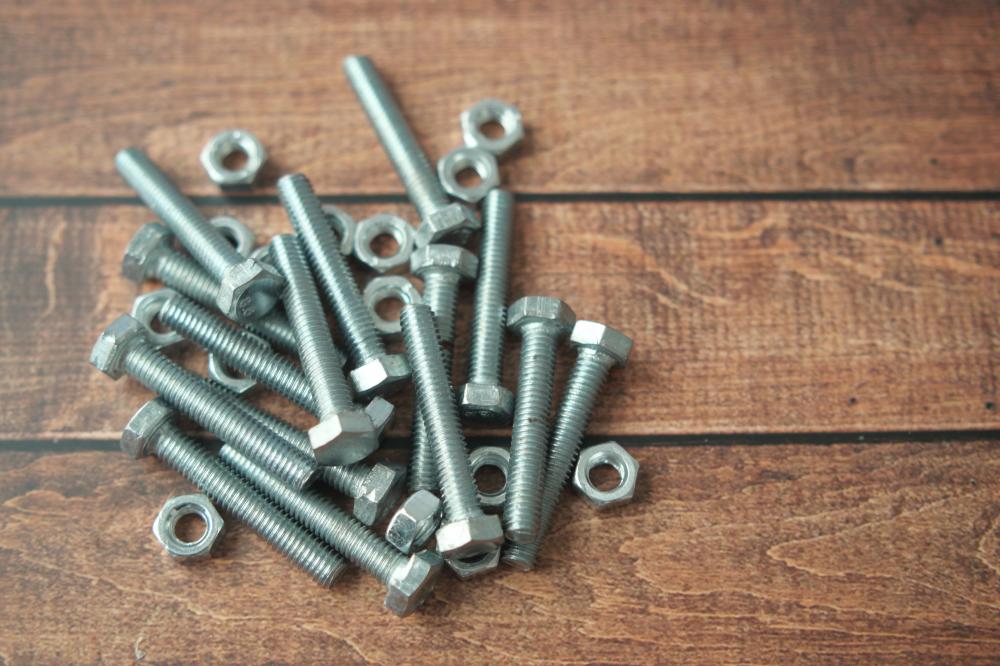
Understanding Screw Machine
At Anco Precision Inc., our four decades of experience have not only been about mastering the craft of CNC machining but also about understanding the evolution and importance of specialized machinery like the screw machine. A screw machine, for those unfamiliar, is an automated lathe specifically designed to produce small, high-precision turned parts with incredible efficiency. Let’s dive into the nitty-gritty of screw machines and why they are indispensable in modern manufacturing.
Types of Screw Machine
Swiss Screw Machine
Firstly, the Swiss Screw Machine stands out for its precision and capability to produce complex parts. Originating in Switzerland for the watchmaking industry, this machine supports the workpiece with a guide bushing, offering stability that allows for intricate operations over its length. In our shop, we’ve leveraged this feature to create parts with tolerances as tight as ±0.0002 inches, which is crucial for industries like aerospace and medical devices.
Turret Screw Machine
On the other hand, the Turret Screw Machine, also known as a Brown & Sharpe, offers versatility through its multiple tooling positions. This machine operates by holding the workpiece in a fixed position while various tools perform operations. It’s fascinating to see how a piece of raw material is transformed into a part, ready for assembly or further processing, in a matter of seconds. This efficiency is what makes the turret screw machine a valuable asset for high-volume production.
Benefits of Screw Machines
One of the key benefits of utilizing a screw machine is its ability to operate continuously with minimal supervision, thanks to its automated nature. This automation translates into faster production times and lower costs, a boon for any project we undertake. Additionally, the repeatability and consistency of parts made with screw machines are unmatched. Whether it’s the first or the thousandth part, each piece meets the strict quality standards we set at Anco Precision Inc.
Screw Machine in Industry
The role of screw machines extends beyond our shop floor. In industries like automotive, medical, and electronics, the demand for complex, precision parts is ever-growing. The automotive industry, for example, relies on screw machines for producing components found in engines and transmissions. Similarly, the medical field benefits from the high precision of Swiss machines for creating intricate implants and surgical tools.
Challenges and Solutions
Despite their benefits, working with screw machines presents unique challenges, such as tool wear and material selection. Tool wear, if not monitored, can compromise the dimensional accuracy of parts. At Anco Precision Inc., we’ve adopted a proactive approach, regularly inspecting and replacing tools to ensure consistent quality. Material selection is another critical consideration. Different applications require different materials, and choosing the right one is crucial for the part’s performance and durability.
Advancements and Innovations
The evolution of screw machines has been remarkable. Today, CNC technology has enhanced these machines, allowing for even greater precision and flexibility. The integration of CNC with Swiss and turret machines means that complex parts can now be produced more efficiently than ever. Moreover, advancements in software have streamlined the programming process, reducing setup times and allowing for rapid prototyping.
Anco Precision’s Approach to Screw Machining
At Anco Precision, we continually invest in the latest screw machining technologies to meet our clients’ exacting requirements. By combining traditional craftsmanship with modern CNC capabilities, we offer a unique blend of quality, speed, and precision. Our team’s expertise in screw machines enables us to tackle projects that others might find daunting, and it’s this challenge that drives us.
Each project begins with a detailed consultation to understand the client’s needs, followed by meticulous planning and execution. This client-centric approach has fostered long-standing relationships in various industries, making Anco Precision a trusted name in CNC machining and screw machine production.
Conclusion
As we reflect on the journey of the screw machine from its humble beginnings to its role in today’s high-tech industries, it’s clear that these machines are more than just tools; they are the backbone of precision manufacturing. At Anco Precision Inc., our dedication to leveraging the best of screw machine technology underlines our commitment to excellence. Whether it’s a complex aerospace component or a simple automotive part, our team is ready to turn your concepts into reality.
In a world where precision and reliability are paramount, the role of the screw machine cannot be overstated. It’s a testament to the ingenuity of past generations and a tool for the future. As we look ahead, we’re excited about the possibilities that new advancements in screw machining will bring, and we’re ready to meet these challenges head-on. With Anco Precision, your project is in skilled hands.

What is a screw machine?
At Anco Precision Inc., when we talk about a screw machine, we’re referring to a specialized type of lathe designed for precision machining of small, complex parts. This machine automates the cutting process to produce parts with exceptional accuracy and repeatability. Think of it as the Swiss army knife of the machining world; compact yet incredibly capable, especially when it comes to producing high volumes of precision components quickly. Over the years, the evolution of screw machines has been significant, integrating with CNC technology to offer even greater flexibility and precision.
What is screw machine called?
A screw machine might have a somewhat misleading name, as it doesn’t necessarily create screws alone. In fact, it’s a term that encompasses different types of automatic lathes, including Swiss and Turret (Brown & Sharpe) machines. Each type has its unique capabilities and applications. For example, the Swiss screw machine is renowned for its precision and ability to produce intricate parts, originally designed for the Swiss watchmaking industry. On the other hand, the Turret screw machine offers versatility with its multiple tooling positions, making it ideal for high-volume production runs.
What machine is used for screw?
When it comes to manufacturing screws specifically, a screw machine — particularly a Swiss-type screw machine — is often used. This machine’s design allows for the intricate levels of detail required in screw manufacturing, providing the precision and efficiency needed for producing consistent, high-quality screws in bulk. However, it’s worth noting that screw machines are not limited to producing screws; they’re capable of manufacturing a wide range of precision parts for various industries.
What is the difference between a lathe and a screw machine?
The primary difference between a lathe and a screw machine lies in their operation and applications. A lathe is manually operated and requires continuous supervision and adjustment by a machinist. It’s versatile and can handle a variety of jobs but is not the best option for high-volume production due to its manual nature. On the flip side, a screw machine is automated, which means it can run continuously with minimal supervision, producing parts at a quicker rate and more consistently, making it ideal for large-scale production of small, precision parts. Here at Anco Precision Inc., we appreciate the automation aspect of screw machines, as it enables us to maintain high precision while meeting the demands of large orders efficiently.
What are some challenges when working with screw machines, and how do you address them?
Working with screw machines comes with its set of challenges, such as tool wear and material selection. Tool wear, for instance, can significantly affect the precision of the parts being produced. To combat this, we adopt a proactive maintenance schedule, ensuring tools are regularly inspected and replaced as necessary. As for material selection, this requires a deep understanding of the part’s intended use and the properties of different materials. By consulting with our clients and leveraging our extensive experience in the industry, we make informed decisions that guarantee the performance and durability of the final product. These measures help us uphold the quality standards Anco Precision Inc. is known for, despite the challenges that might arise.
Resources
- Bureau of Labor Statistics – Machinists and Tool and Die Makers – Learn more about the job outlook, duties, and requirements for machinists and tool and die makers from the U.S. Bureau of Labor Statistics.
- National Institute of Standards and Technology (NIST) – Explore NIST’s resources on manufacturing, including standards, technology, and research to support industries like precision manufacturing.
- American Society of Mechanical Engineers (ASME) – ASME offers professional development, codes and standards, and networking opportunities for mechanical engineers working in various industries.
- Society of Manufacturing Engineers (SME) – SME provides resources, training, and certifications for professionals in the manufacturing industry, including precision machining.
- National Science Foundation (NSF) – NSF funds research and innovation in science and engineering, including advancements in manufacturing technologies like screw machines.
